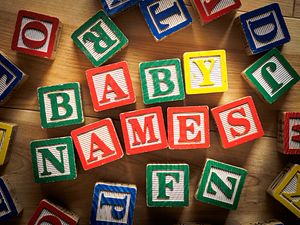Names can be fascinating personal and cultural markers. What parents decide to name their children may be a window into what they believe or simply a reflection of their tastes. Trends in naming sometimes reflect broader social shifts and Central Asia is not immune to such a phenomenon.
Since independence, names have been a touchy subject in the region. The Tajik parliament recently began discussing new amendments — floated earlier this year — which would introduce new restrictions on the types of names parents can legally give their children. Specifically, foreign or Islamic-sounding names would be rejected by state registries. In March, Asia Plus reported that the Ministry of Justice was preparing a list of over 3,000 acceptably Tajik names.
Countries around the world have established various rules for naming children, most often including bans on names which use numerals and symbols. Chinese names must be in Chinese characters (so no Latin alphabet names) and specifically characters that computers can read. A family in 2007 tried to name their child “@.” Denmark, Hungary, Portugal and Iceland all have lists of approved names and a few methods of applying for exceptions. New Zealand’s register has bans on names that would offend a “reasonable person,” include numerals, or resemble titles — so Lucifer, King, Anal and 4Real are out. Naming laws in the United States vary between individual states, with the few restrictions generally targeting obscenities, numerals, and characters that are difficult for computers to read — but names like Moon Unit (Frank Zappa’s daughter) and Sage Moonblood (Sylvester Stalone’s son) are fine (although most Americans opt for pretty normal names.)
Naming trends in Tajikistan have gone through a few cycles in the last 35 or so years. In the 1980s, as discussed by RFE/RL earlier this year, “so-called pure Tajik or old Persian names became fashionable both for girls and boys.” This trend progressed through the dissolution of the Soviet Union. In 2007, President Emomali Rahmon cut the -ov off his own name. RFE/RL says, “Thousands of others followed suit, de-Russifying their names and sometimes replacing the Russian endings with pure Tajik suffixes such as -zoda, -zod, or -i.”
Since then, however, naming trends in the country have begun to shift toward more Islamic-influenced names — Muhammads and Aishas. Tajikistan is 90 percent Muslim and Islam has been the region’s dominant religion for all of modern history. But Islamic-style names were not necessarily common. That’s changed over the last decade.
According to a 2010 report, “Approximately every fifth baby girl born in Dushanbe gets an Islamic name.” While the naming trend mirrors growing piety in Tajik society, authorities view it in the same light as other expressions of Islam — as a potential threat. The pressure to crack down on Islamic-sounding names runs in parallel with other initiatives to curb Islamic influence in Tajik society — bans on children attending Mosque, bans on women wearing headscarves in schools, reports of forced beard shavings, and not the least, the utter crushing of the moderate Islamic Renaissance Party (IRPT).
While Tajikistan, as noted above, is not alone in the world in looking to exert some form of control over the naming of children, it is perhaps unique in targeting names that seem reasonable given the country’s dominant religion and history. Even Rahmon’s first name — Emomali — is Islamic in origin. David Trilling noted earlier this year that “Emomali is a version of Imam Ali, Prophet Muhammad’s son-in-law, the fourth caliph for Sunnis and the first imam for Shia Muslims.”
Sometimes a name is just a name.

































